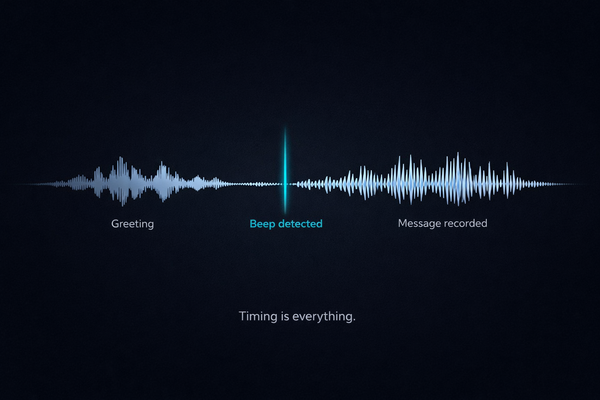[Healthcare] Connecting Heart and Head: How Ed Marx is Transforming Healthcare with Technology
![[Healthcare] Connecting Heart and Head: How Ed Marx is Transforming Healthcare with Technology](/content/images/size/w1200/2025/05/Heart---Head---AI_.png)
In this exclusive interview, healthcare technology leader Ed Marx shares insights on digital transformation in healthcare and the critical intersection of human compassion and innovative technology.
In this exclusive interview, Richard Lin speaks with Ed Marx about transforming healthcare through technology while maintaining human connection. They explore how successful digital transformation requires connecting technological innovation with compassionate care. Ed shares personal stories that shaped his mission, including how technology saved his daughter's life, and provides insights on overcoming cultural barriers to innovation in healthcare settings. As both a former combat medic and healthcare CIO, Ed offers a unique perspective on leading technological change while keeping patient care at the center.
Key Takeaways
• Connecting Heart and Head – Successful healthcare technology implementation requires linking innovation to human purpose; even average technology can achieve extraordinary outcomes when people understand the heart behind it.
• Overcoming Cultural Resistance – Including frontline clinicians in technology design and implementation is essential for adoption; having nurses lead change for other nurses creates buy-in and sustainability.
• Leadership Mindset Matters – Decision-makers who resist technology in their personal lives often block organizational innovation; exposing executives to cutting-edge companies through "West Coast Wing" tours can change perspectives.
• Staying Connected to Purpose – Leaders should regularly volunteer in clinical settings to remember the human impact of their technology decisions; Ed's practice of working weekly shifts in cancer treatment areas kept him grounded.
• AI's Healthcare Future – Artificial intelligence will transform early diagnosis, personalized treatment, and clinical decision support; ambient voice technology will free clinicians from documentation burdens while AI systems will suggest optimal questions based on comprehensive patient data.
Healthcare has traditionally been slow to adopt new technologies, with many institutions still relying on outdated systems and paper-based processes. Ed Marx, bestselling author and former healthcare CIO, is determined to change that by advocating for a more balanced approach that connects technological innovation with human compassion.
With extensive experience across multiple hospital networks, military service as a combat medic, and recognition as a LinkedIn Top 25 Health Influencer, Marx has positioned himself as a leading voice in healthcare innovation. I had the opportunity to speak with Ed to discuss how healthcare institutions can successfully embrace digital transformation, the challenges of implementing new technologies in clinical settings, and his vision for the future of patient care.
The Personal Journey Behind the Mission
Like many influential healthcare innovators, Marx's passion for technology in healthcare stems from deeply personal experiences. After serving in the military as a combat medic, he found himself drawn to healthcare, taking positions that gradually revealed his true calling.
His transformational moment came when his newborn daughter faced a life-threatening situation during birth. Traditional approaches weren't working, but Marx realized technology could bridge a critical gap.
By implementing remote monitoring technology that allowed specialists miles away to view his daughter's vital signs in real-time, Marx witnessed firsthand how technology could save lives when integrated thoughtfully into clinical care.
"It was at that moment I knew my purpose in my career was to leverage technology and clinical care to save people's lives," he says.
Overcoming Cultural Barriers to Innovation
When I asked Marx about the biggest obstacles to digital transformation in healthcare, his answer was immediate: culture.
He describes how healthcare professionals, particularly nurses, already contend with overwhelming responsibilities and "alarm fatigue" from existing technologies. Adding more technology without proper integration and buy-in often creates resistance rather than improvement.
To overcome this resistance, Marx advocates for a collaborative approach that includes frontline clinicians in the design and implementation process.
The Leadership Challenge
Marx also highlighted another significant obstacle: decision-makers who lack technological understanding or innovation mindsets.
"Some of the decision makers who are involved are not innovative themselves or do not understand technology themselves," Marx observes. He shared how in his experience, key executives who were resistant to adopting technology in their personal lives were often the same ones blocking organizational innovation.
To address this challenge, Marx developed a strategy he calls the "West Coast Wing," taking C-suite executives on tours of innovative companies to expose them to cutting-edge technologies and fresh perspectives.
Maintaining the Human Connection
Throughout our conversation, Marx repeatedly emphasized that technology alone isn't enough—it must be connected to human purpose and compassion.
To maintain this connection, Marx made a practice of volunteering in clinical settings throughout his executive career, ensuring he never lost touch with the real impact of technology on patients and providers.
"Every Wednesday at noon, I would take off my suit coat and I had an hour long appointment. I put on my blue vest, my volunteer vest, and I'd walk over to our cancer hospital and I would hang out with outpatient people getting outpatient chemotherapy," he shares. "That helped me remember: my gosh, at the end of what I do, this is just not widgets."
The Future of Healthcare Technology
Looking ahead, Marx is particularly enthusiastic about AI applications in healthcare, especially in areas like early diagnosis, personalized treatment, and clinician support.
Marx envisions a future where technology helps clinicians work at the "top of license" by handling routine tasks while allowing human expertise to focus on complex cases. He describes a world where ambient voice technology eliminates burdensome documentation and AI systems prompt clinicians with the next best questions based on a patient's unique profile and the latest research.
"Based on everything I know about Ed Marks, his DNA, his family history, and the latest studies that came out of the medical journals, here's the next best question," he illustrates.
Conclusion
As healthcare continues its digital evolution, leaders like Ed Marx demonstrate that successful transformation isn't just about implementing new technologies—it's about connecting those technologies to human purpose and compassion.
By bringing together the "heart and head" of healthcare, Marx provides a blueprint for innovation that improves efficiency without sacrificing the human connection that remains at the core of healing.
With his unique background spanning military service, clinical exposure, and executive leadership, Marx offers a holistic perspective on healthcare transformation that acknowledges both the tremendous potential of technology and the irreplaceable value of human connection.
How to connect with Edward Marx
Keywords: Healthcare technology, digital transformation, healthcare innovation, patient experience, clinical technology adoption, healthcare leadership, AI in healthcare, medical technology




![[AI Digest] Agents Coordinate Plan Deploy Scale](/content/images/size/w600/2025/07/Daily-AI-Digest.png)